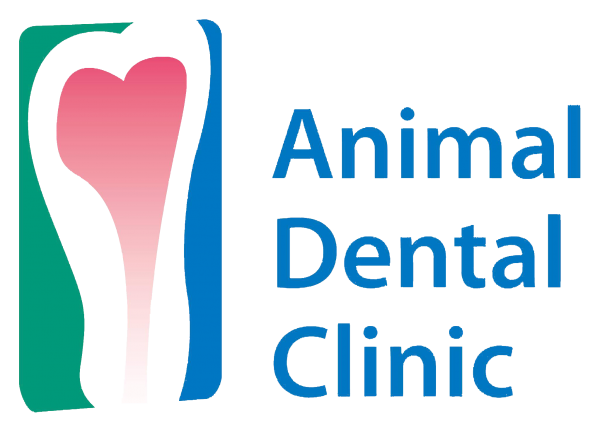At Animal Dental Clinic, we understand you may have questions regarding your pet’s dental needs. Dr. Barron Hall, our board certified veterinary dentist and oral surgeon, is here to answer them for you. We recommend that you set up a consultation and oral exam with Dr. Hall in order to get all the answers you need in order to make an informed decision regarding your pet’s oral care. Below are some of the most common concerns when it comes to your pet’s dental needs. Please feel free to e-mail us at info@adcva.com or call at (703) 281-5900, with any further questions, or to set up your consultation with Dr. Hall.
Why does my pet need a veterinary dentist?
Only veterinarians who have completed a program approved by the American Veterinary Medical Association (AVMA) can be called a board certified veterinary dentist. A veterinary dentist can diagnose and treat most dental/oral problems under one anesthesia. In veterinary school there is only four years to learn everything about multiple species; unfortunately students are taught little to nothing about animal dentistry and oral health, although this is the most common problem in dogs of all ages.
Dr. Barron Hall has been a practicing veterinarian for more than 20 years. He completed a two-year residency in dentistry and oral surgery in Dallas, Texas in 2003. During his residency he was guided by the late Dr. Robert Wiggs, DVM, FAVD, Dipl., AVDC, one of the pioneers of veterinary dentistry. Dr. Hall attends the annual Veterinary Dental Forum every year to further his dental knowledge while learning about the latest in procedures and products in the world of veterinary dentistry and oral surgery. To learn more about Dr. Hall please visit the “Our Doctor” page.
What are some of the most common clinical signs that my pet’s mouth is painful and/or has dental disease?
- Halitosis- having offensive smelling breath.
- Facial Swelling- can occur very quickly. An oral exam is a vital part of evaluating the cause of any swelling. (Check out “Trixie’s Story” on our Petsimonials page.)
- Chronic eye problems
- Sneezing
- Nasal discharge
- Rubbing face
- Dropping food when eating
- Abnormal chewing
- Jaw out of alignment
- More calculus accumulation on one side of the mouth
- Suddenly acting aggressive or more recluse.
- Acting “old” or “senile”
- Not eating – most animals will continue to eat even when they have a painful mouth.
*** THERE MAY BE NO SIGNS OF ORAL PAIN ***
Is my pet’s broken tooth painful?
YES! If the pulp is exposed, the tooth will be acutely painful. The pulp is the living part of the tooth that contains the nerves, blood vessels and lymphatics. Most pets, however, do not show obvious signs of tooth pain. These pets will typically chew on the other side of the mouth or avoid using the broken tooth until the nerve dies in a matter of weeks to months. Once the nerve dies, the open pulp cavity is an area that food, saliva, debris, and bacteria enter the tooth resulting in an infection. Overtime the pain associated with the broken tooth changes from acute to a chronic dull pain like having a stone permanently caught in your shoe. Antibiotics are a waste of time and money to treat a fractured tooth. They will help control the infection temporarily, but the problem recurs after discontinuing the medication. The infection will persist until the source of the infection, the infected pulp, is removed either by root canal therapy or surgically extracting the tooth. We advise root canal treatment for most broken teeth since it is minimally invasive. No gum tissue or bone are cut, therefore minimal potential for pain.
Why does my pet need intraoral dental radiographs (“x-rays”)?
As with human teeth, we cannot see the whole tooth. When we take dental radiographs, we are assessing the entire tooth including the root(s) and surrounding structures below the gum line. In order to do this safely and efficiently, each patient must be intubated and under general anesthesia. We recommend full mouth intraoral dental radiographs at least once a year for all pets. If there has been treatment of more advanced dental disease, we will recommend more frequent evaluations. At the Animal Dental Clinic we utilize the latest digital x-ray equipment on the market, which allows us to be more efficient and use less radiation. Dr. Hall reviews all of the radiographs as part of the process to come up with a treatment plan for your pet. A copy of the images are sent home with you and also to your veterinarian.
Records request policy
- All clients at the time of service get
- Physical copy of records
- Digital copy of records sent to rDVM and/or client
- Within 2 months of the procedure:
- Will send a digital copy to the owner at no cost
- Will send a digital copy to ONE specialist at no cost
- Will send a digital copy to an insurance copy ONE TIME
- Will send a digital copy to additional locations at a cost of $20 per location
- Within 1 year of the procedure:
- Will send a digital copy to the owner at a cost of $30
- Will send a digital copy to anyone else at a cost of $30 per location
- More than 1 year after the procedure:
- Will send a digital copy to anyone at a cost of $50
